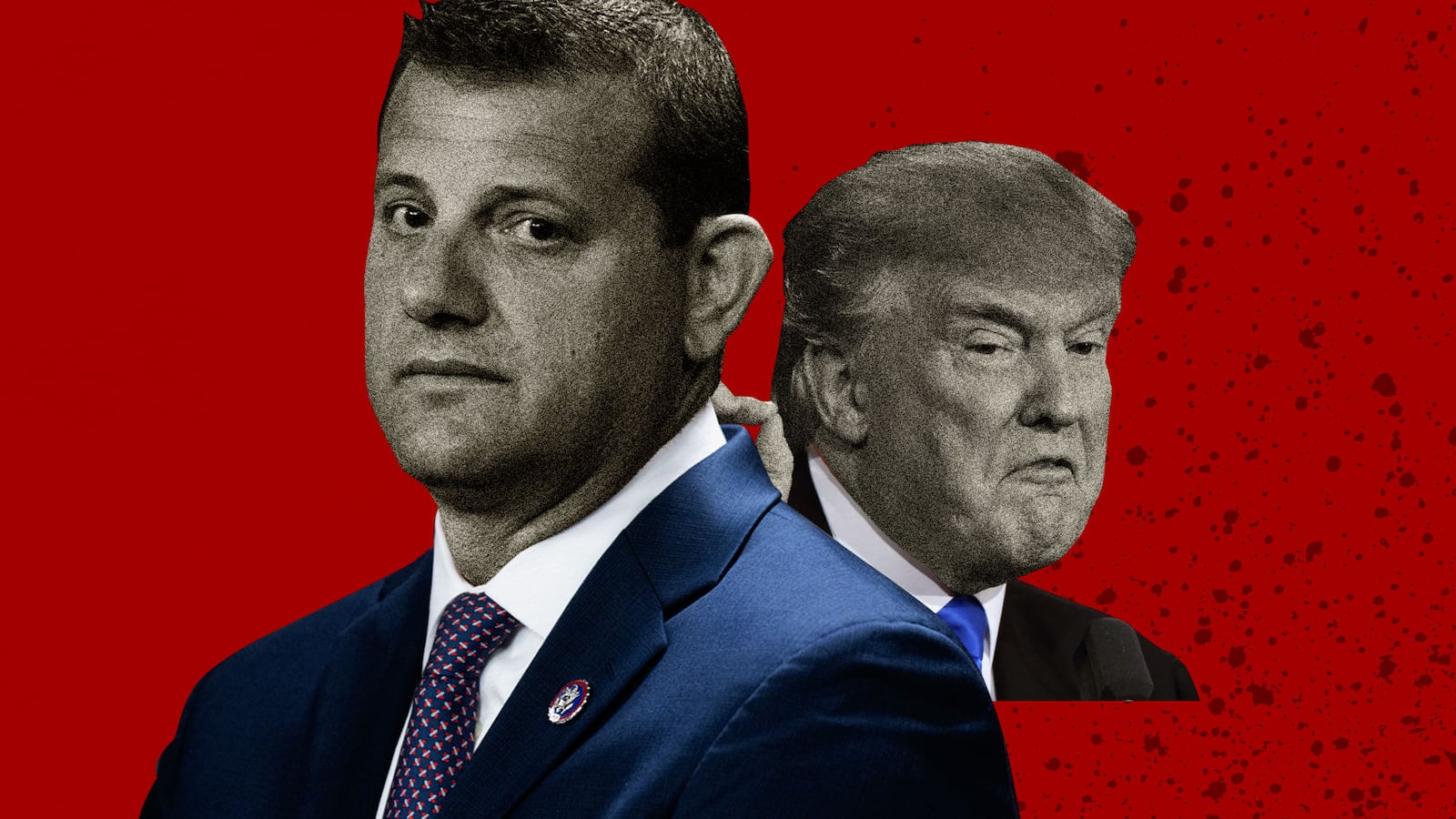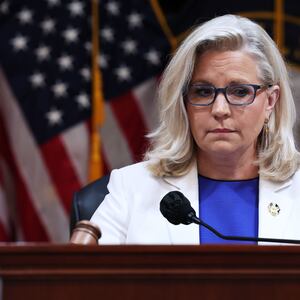For more than a year, former President Donald Trump has made it a personal mission to seek and destroy the 10 House Republicans who voted to impeach him in January 2021.
But after eight of those GOP lawmakers lost their primaries or decided to retire, one member seems to have escaped the hellfire: Rep. David Valadao of California.
Trump has mostly ignored Valadao, the most politically vulnerable Republican to cast his vote for impeachment.
Unlike the only other pro-impeachment Republican who may survive, Rep. Dan Newhouse (WA), Valadao’s biggest hurdle is the general election in just over two weeks. Newhouse’s main battle was surviving the primary, (Newhouse narrowly won his primary in August, and is heavily favored to win this November.)
Because after narrowly surviving a primary challenge, Valadao now must mend the stretched wings of their party in a post-Trump era. In his district, that means convincing the MAGA-faithful who have reason to loathe him—and moderates who look at him through rose-colored lenses—that he can represent all of them.
This task is made more complicated thanks to that state’s redistricting, he’s running in a seat that favors Democrats by 10 points.
Since Democratic pickups are few and far between this cycle, money has flooded in to boost state assembly member Rudy Salas, Valadao’s opponent, and largely negative ads have taken over the airwaves.
With two weeks until Election Day, $20 million has been spent on advertising overall, more than $6 million from the House Majority PAC and Democratic Congressional Campaign Committee for Salas, and around $10 million from the National Republican Campaign Committee and Congressional Leadership Fund for Valadao.
“He only wins if he can make a crossover appeal,” said Thad Kousser, a political science professor at the University of California San Diego.
“Republicans in California look like Republicans across the country. They’re not ‘California Republicans’ anymore, right? They’re not these, you know, coastal, environmental, socially liberal—that wing has really left the Republican Party,” Kousser added. “What’s left of Republicans in the liberal state,” he said, “Is the MAGA base.”
In the primary, Valadao barely eked out his win. He came out just 2.2 points ahead of Chris Mathys, who’d berated the congressman for his lack of Trumpian bona fides.
Valadao’s primary was one where the Democrat-aligned House Majority PAC meddled to try and prop up Valadao's more MAGA-brand challenger.But the PAC’s ploy didn’t work, and Trump stayed quiet and didn’t endorse anyone. That silence has continued, even as former Vice President Mike Pence campaigned alongside the congressman this week.
Valadao, for his part, has steered clear of Trump. At a debate turned Q&A after Salas canceled last week, he dodged a question on whether he’d accept the former president’s endorsement.
“I don’t think he’s paying much attention to this race,” the congressman said.
Salas, on the other hand, easily won his primary, he has longtime experience in Central Valley politics, and he’s carved out a focus on health care and reproductive rights that puts him in stark contrast to the Republican congressman.
Valadao has a record of being staunchly against abortion at all stages of pregnancy, with exceptions for the life of the mother.
To be sure, Salas hasn’t had a perfect run either. His absence from the debate created an opening for Valadao to hit the assemblyman hard on missed votes in the state legislature, and allowed him to launch unanswered attacks from the broader Republican playbook against his Democratic opponent on economy, jobs, gas prices. Salas, miffed about a Valadao ad that he said misrepresented his vote on a pharmaceuticals bill to raise taxes on opioid manufacturers, had demanded the congressman apologize and retract the ad in order for the debate to proceed.
Valadao declined.
“I think it just shows the weakness of who he is and the character… His excuse I think is weak. When we do our jobs as members of Congress, the fact that we have to debate and sometimes debate with people we disagree with is a core function of what we do,” Valadao said of Salas’ absence.
Salas also had a less-than-favorable news cycle this summer after he was caught lying about his age on a dating app, which he said was a mistake and wouldn’t happen again. He listed himself as 34, when he was actually 45.
Republican strategists like Cathy Abernathe, a longtime fixture in Central-Valley politics, think even Trump-faithful voters in the district can stomach a vote for Valadao, if it means contributing to their greater good.
“The Republicans, number one, know that we have to stop what's going on in Washington and the only way to do that is to elect your Republican—would be to re-elect Valadao—because he’s going to be a Republican vote, a Republican vote for speaker, and the speaker’s vote is virtually the only vote that matters,” she said.
But that doesn’t necessarily mean GOP voters are happy about it.
“I think Republicans who will never forgive him for that vote,” Abernathy added, “Are willing to overlook it.”
Editor’s note: This story has been updated to reflect that it was the House Majority PAC that was involved in the district’s Republican primary.








